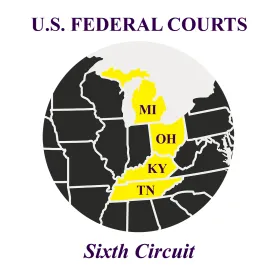On March 21, 2022, the U.S. District Court for the Eastern District of Tennessee invalidated Notice 2016-66 for failing to comply with the Administrative Procedure Act (APA) and granted broad injunctive relief requiring the IRS to return to taxpayers and material advisors the documents and information obtained improperly under the Notice.1 (For a more detailed explanation of the district court’s ruling, see GT Alert, Court Invalidates Notice 2016-66 on Micro-Captive Transactions, the Second Time an IRS Notice Was Vacated This Month.) Because the district court did not limit the injunctive relief to the parties in the case, the ruling potentially implicates thousands of disclosures made under Notice 2016-66. Questions were raised about how the IRS would comply with this injunction. On April 18, 2022, the government filed a Motion for Reconsideration of Injunctive Relief (Motion for Reconsideration).2 The government subsequently filed a Motion for Stay of Injunctive Relief on April 20, 2022, to delay the enforcement of the injunction pending the outcome of its Motion for Reconsideration.3
Government’s Arguments Supporting Its Motion for Reconsideration
In its Motion for Reconsideration, the government argued the IRS should not be required to return documents to nonparty taxpayers and material advisors on three grounds. First, the government claimed the district court made a clear error of law by granting the injunctive relief without affording the government an opportunity to brief the issue. The initial complaint sought the invalidation of Notice 2016-66. CIC Services subsequently filed a motion to amend its complaint seeking injunctive relief, including an order that the IRS return all information obtained under Notice 2016-66 to taxpayers and material advisors. The government opposed the motion, claiming it did not have adequate time to address the appropriateness of injunctive relief before the deadline for dispositive motions. The district court granted CIC Services’ motion to amend but delayed briefing on the remedy until it had decided the dispositive motions. Relying on this express statement, the government did not address the appropriateness of injunctive relief in its opposition to CIC Services’ motion for summary judgment. According to the government, the judicial system relies on input from the parties. Therefore, it concluded that the district court should dissolve the injunction until it receives briefing from the parties on the appropriateness of injunctive relief.
Second, the government argued the district court made three errors of law in granting injunctive relief. According to the government, the district court lacked authority under the APA to affirmatively require the IRS to return documents received under Notice 2016-66. Under Section 706(1) of the APA, a federal court can only compel an agency to take a particular action where it is mandated by statute or regulation. Here, the government argued that no statute or regulation required the IRS to return the documents obtained under Notice 2016-66. Moreover, the government argued CIC Services lacked standing to seek an injunction requiring the IRS to return documents to taxpayers and material advisors who were not party to the action. According to the government, Article III of the Constitution limited judicial power to cases and controversies and therefore the district court lacked jurisdiction to require the IRS to return documents to non-parties. Finally, the government argued that equitable principles did not support injunctive relief because CIC Services could not establish a threat of future harm. Because the district court invalidated Notice 2016-66, CIC Services would not incur future compliance costs. The government concluded that there was no legal justification for the injunctive relief.
Third, the government argued that even if the district court denies its Motion to Reconsider, it should clarify IRS duties under the injunction. In particular, the government claims that the ruling does not specify: (i) which documents the IRS must return; (ii) what it means to “return” the documents, especially where the participants no longer exist; or (iii) the geographic scope of the injunction.
Conclusion
CIC Services is expected to oppose the government’s Motion for Reconsideration. It remains to be seen whether the IRS ultimately will be required to return documents obtained under Notice 2016-66 to nonparty taxpayers and material advisors. But the government did not challenge the invalidation of Notice 2016-66 in its Motion for Reconsideration. Mann Construction, Inc. v. U.S.4 controls that issue, at least in the Sixth Circuit. Therefore, taxpayers and material advisors with current disclosure requirements or who have paid penalties for failing to disclose reportable transactions may wish to consult with their tax advisors about their ongoing duty to disclose or the procedure for obtaining a refund for penalties paid.
ENDNOTES
1 CIC Services, LLC v. IRS, Case No. 3:17-cv-110 (E.D. Tenn. Mar. 21, 2022).
2 Case No. 3:17-cv-110.
3 Case No. 3:17-cv-110.
4 No. 21-1500 (6th Cir. Mar. 3, 2022).




 />i
/>i

